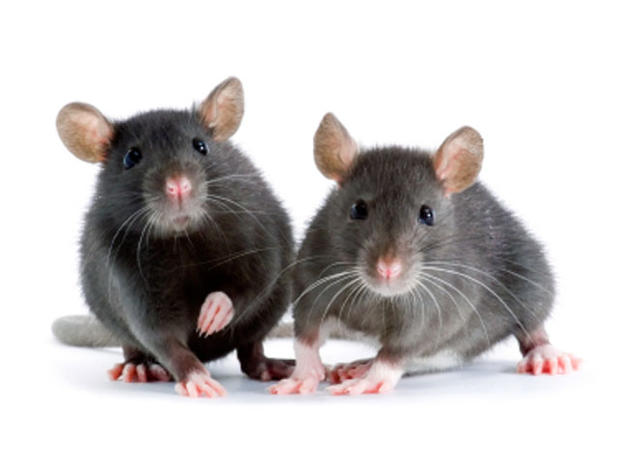Prostate cancer cured in mice: Are humans next?
(CBS) There's still no cure for prostate cancer, but scientists may be closing in on one. They say they've developed a vaccine that destroys even advanced prostate tumors without any side effects.
For now, the vaccine has proven to work only in mice. But the scientists - from the Mayo Clinic in Rochester Minn. and at the University of Leeds in England - hope the treatment can one day work in humans.
"So far it looks safe, and if it continues to look safe, there's nothing we wouldn't rule out," Dr. Alan Melcher, study co-author and professor of clinical oncology at the University of Leeds, told the Daily Mail.
By using DNA from healthy prostate cells, the researchers created a vaccine that tricks the immune system to think existing tumors are antigens - like an invading flu virus, for example - thus triggering its antibodies to destroy the tumors. In mice, 80 percent of prostate cancer cells were destroyed without harming healthy tissue, the Daily Mail reported.
The findings were published in Nature Medicine.
How far off is a human version of the vaccine cure? Study author Dr. Richard Vile, professor of immunology at the Mayo Clinic, told HealthDay it might take "three to five years." He said more research was needed to clear some FDA hurdles.
Prostate cancer is one of the deadliest kinds of cancer, striking almost 220,000 men each year and killing 32,000. Conventional treatments include surgery, radiation therapy, and hormone therapy, which can devastate surrounding prostate tissue. That's why researchers were so pleased to see that the experimental vaccine didn't destroy healthy tissue in mice.
But researchers are cautioning men not to get their hopes up. Dr. Kate Holmes, research manager at England's Prostate Cancer Charity, said, "Although we are hopeful that the results of this study could help to form the basis of a new cancer vaccine in future, it is important to remember that the researchers have only investigated the potential of their vaccine in mice."The National Cancer Institute has more on prostate cancer.
